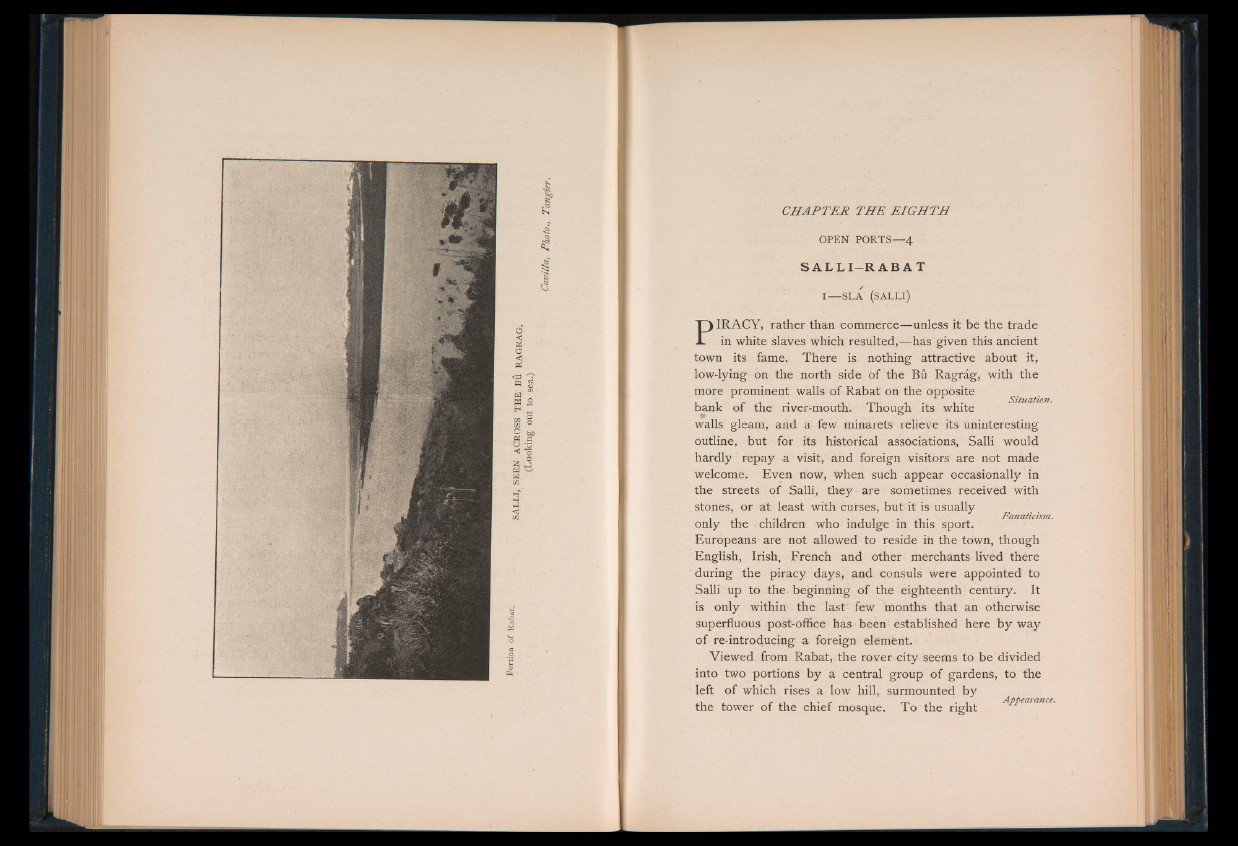
CH A PTER TH E E IG H TH
OPEN PORTS— 4
S A L L I - R A B AT
I— SLA (SALLI)
PIRACY, rather than commerce— unless it be the trade
in white slaves which resulted,-¿has given this ancient
town its fame. There is nothing attractive about it,
low-lying on the north side of the Bu Ragrag, with the
more prominent walls of Rabat on the opposite
1 1 r i • , , . Situation. bank of the nver-mouth. I hough its white
walls gleam, and a few minarets relieve its uninteresting
outline, but for its historical associations, Salli would
hardly repay a visit, and foreign visitors are not made
welcome. Even now, when such appear occasionally in
the streets of Salli, they are sometimes received with
stones, or at least with curses, but it is usually
i i i -i i - i i • Fanaticism. only the children who indulge in this sport.
Europeans are not allowed to reside ih the town, though
English, Irish, French and other merchants lived there
during the piracy days, and consuls were appointed to
Salli up to the beginning of the eighteenth century. It
is only within the last' few months that an otherwise
superfluous post-office has been established here by way
of re-introducing a foreign element.
Viewed from Rabat, the rover city seems to be divided
into two portions by a central group of gardens, to the
left of which rises a low hill, surmounted by
the tower of the chief mosque. To the right